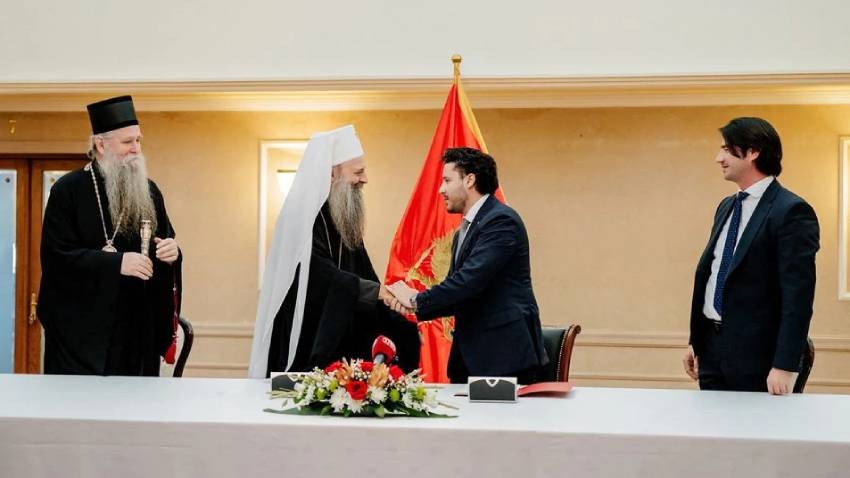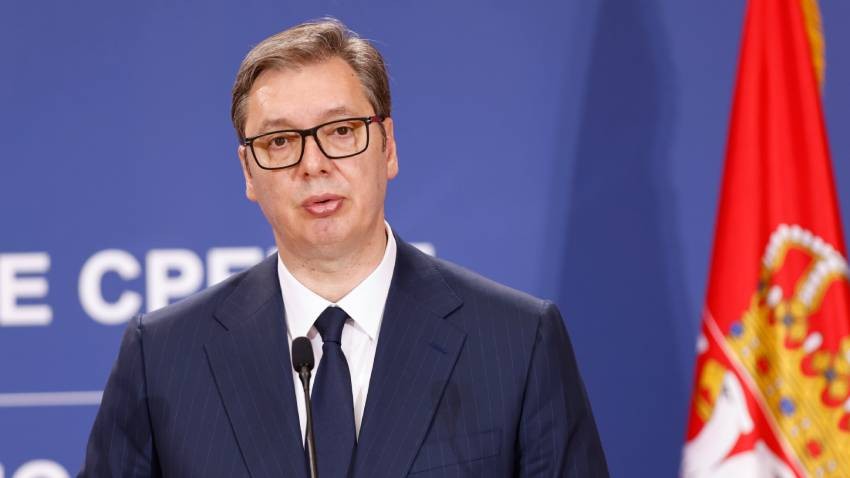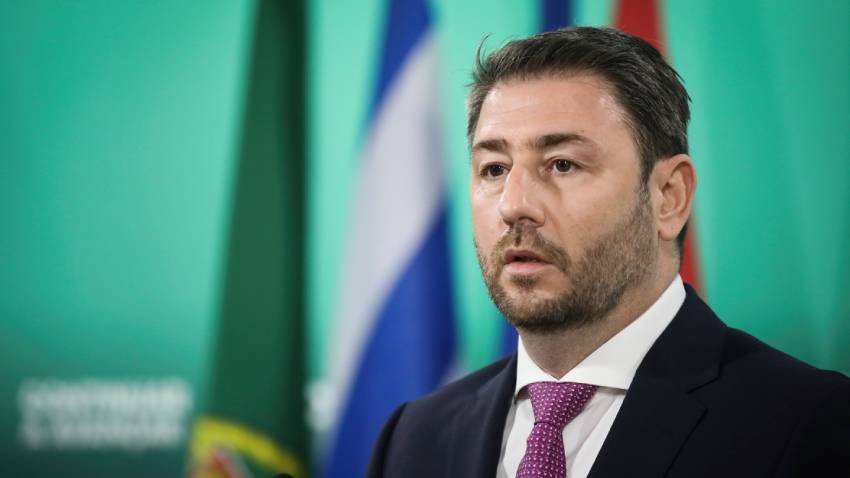Montenegro's government faces no-confidence vote over agreement with Serbian church

A number of government coalition parties, led by the Democratic Party of Socialists (DPS) of President Milo Đukanović, announced a no-confidence motion in Prime Minister Dritan Abazovic’s government, after it signed a “fundamental agreement” with the Serbian Orthodox Church the largest religious community in the country.
“The government does everything with the desire to build a society of justice and equality,” Abazovic said in a press release.
“We will initiate a no-confidence motion in parliament and call for early elections. This agreement is against the constitution of Montenegro and will be suspended immediately after the election of a new government,” the DPS said.
According to DPS the "irresponsible behaviour" of Abazovic, whose government celebrated 100 days at the head of the country, has caused tensions in society.
Opponents of the agreement believe it gives the Church too much power. Issues relating to the Belgrade Patriarchate's properties in Montenegro are settled, and the church itself is recognised as separate from the Montenegrin state.
Serbian president and Kosovo PM meet on 18 August to overcome tensions

Serbian President Aleksandar Vučić and Kosovo Prime Minister Albin Kurti will meet in Brussels on August 18, at the invitation of European Union foreign policy chief Josep Borrell, following the recent escalation of tensions in northern Kosovo, Radio Free Europe's Serbian section reports.
Tensions rose in recent days in Kosovo where Kosovo Serbs protested a government decision about new entry and exit procedures for people with Serbian IDs and about re-registration of cars with Serbian car plates, obliging ethnic Serbs, who are a majority in the north, to apply for documents and car license plates issued by Kosovan institutions.
Kosovo police on Sunday closed the border crossings in Jarine and Brnjak after local Serbs set up roadblocks in the north of the country. The barricades were removed after the Kosovo government postponed the implementation of this decision for a month at the insistence of the US, BTA reports.
"I will go to Brussels on August 18 for talks with Pristina, but I don't know what we can talk about with Albin Kurti... He and his government are constantly creating problems and every time they get the support of the Big Five (France, Germany, Italy, the UK and the US)," Serbian President Aleksandar Vučić said about the upcoming meeting.
Greece Probes Phone-Tapping Allegation by Opposition Leader

Intelligence head resigns amid scandal
In Greece, pressure is growing on the government for details about a scandal involving attempts at phone-hacking through surveillance malware.
The head of Greece’s intelligence service Panagiotis Kontoleon has stepped down, the government announced, “following mistaken actions found during lawful wiretapping procedures”, the office of Prime Minister Kyriakos Mitsotakis said in a statement on Friday. Mitsotakis accepted the resignation, it added.
Nikos Androulakis, the leader of Greece's socialist PASOK party, has filed a complaint with the The Hellenic Data Protection Authority over an alleged attempt to collect information from his personal phone with a spyware programme.
Androulakis, leader of Greece's third-largest political party and a member of the European parliament, had his mobile phone scanned last month through a special European Parliament service, and the scan revealed a suspect link, which allows the hacker full and constant access to the mobile device, BNR correspondent Katia Peeva reported from Greece.
Former energy minister Panayiotis Lafazanis has also claimed that his mobile phone was tapped while he was part of the cabinet. In a parliamentary hearing on July 29, Panayiotis Kontoleon, head of the Greek intelligence service, admitted that his service spied on Thanasis Koukakis, a financial journalist working for CNN-Greece, Reuters reported. The opposition is demanding a thorough investigation into the scandal.
Cyprus Orthodox Church to produce electricity

The Orthodox Church of Cyprus becomes an electricity producer. In partnership with the state-owned electricity company of Cyprus, it will launch the country's largest photovoltaic project worth 70 million euros, reports BNR correspondent Branislava Bobanac from Cyprus. The joint venture, in which the Holy Archdiocese of Cyprus and the Cyprus Electricity Company EAC are shareholders, has received the approval of the Environment Department for the construction of 10 photovoltaic parks, in addition to the four parks licensed earlier. The total solar power generated by the church projects will be 84 megawatts.
Compiled by: Miglena Ivanova
Photos: EPA/BGNES, reuters.com
From today, residents of Stara Zagora, young and old, can send their letter to Santa Claus. A letterbox has been set up in the foyer of the city's State Puppet Theatre to collect messages for Father Christmas. The cultural institution guarantees that..
A Christmas tree with Bulgarian decorations has been placed in a central location at the Griffin Museum of Science and Industry in Chicago. For the fifth consecutive year, Bulgarians living in Chicago crafted the lavish decoration of the Bulgarian..
The usurpation of cultural heritage is one of the many inevitable consequences of any military conflict, both historically and today. Until the end of the war in Ukraine, it is impossible to adequately analyse the extent of the damage caused to the..

+359 2 9336 661
